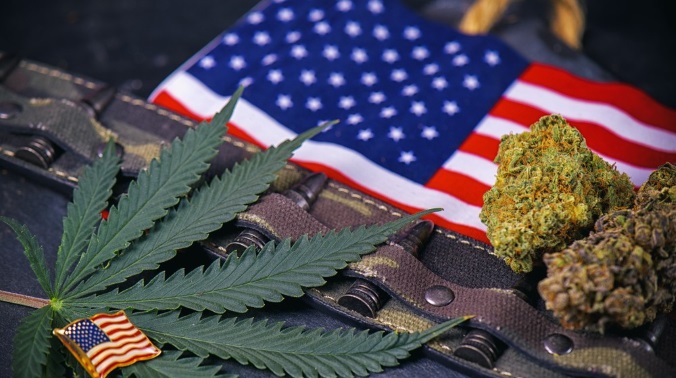The current head of the Department of Justice has made no secret of his feelings about cannabis. From calling medical marijuana “a joke” to making comments such as “good people don’t smoke marijuana,” it’s clear that the Attorney General is opposed to cannabis in all forms. That includes supporting research that could reveal major health benefits for people with a variety of conditions ranging from PTSD to cancer. But not all government entities are entirely in step with the hard line taken by Jeff Sessions.
In a rare demonstration of support for cannabis research, the National Institutes of Health (NIH) and the National Institute on Drug Abuse (NIDA) are collaborating with Dr. Sue Sisley and the Scottsdale Research Institute in Scottsdale, AZ on a groundbreaking, FDA-approved study on the effects of cannabis for treating post-traumatic stress disorder (PTSD).
Key Research Faces Roadblocks
Phase one of the study involves screening thousands of U.S. military veterans to enroll 76 qualifying PTSD patients. So far, scientists have completed research with 22 veterans. But researchers have not been able to collect the remaining 54 enrollees because staff at the Phoenix Veterans Administration hospitals refuse to inform patients about the study or refer them for eligibility screening.
The Phoenix VA’s refusal to tell patients about the study contradicts its own policy on informing patients about ongoing research studies related to their conditions. But that refusal is entirely in line with current federal policy on marijuana research, which explicitly prohibits VA doctors or other professionals such as counselors from telling patients about the availability of medical cannabis or research related to it.
Without enough subjects, the Scottsdale study is effectively stymied. But the implications of the study could be so important for the health of U.S. veterans that The American Legion has written directly to VA Secretary Dr. David Shulkin asking him to personally intervene in the matter in order to enable this critical research.
Veterans Can Benefit from Cannabis
An average of 20 military veterans commit suicide every day, and millions suffer from service-related conditions such as PTSD, traumatic brain injury, and chronic pain.
Numerous studies have already revealed that cannabis can be an effective treatment for these conditions, but the Scottsdale study represents the first federally-approved research on the matter. Rigorous research like the proposed study in Scottsdale is needed to push for a change in current policies. Shulkin himself agrees, although he admits that his hands are tied by the existing federal regulations.
Contradictory Positions Create Obstacles to Research
Shulkin’s stance is not the only indicator of a government at odds with itself over the issue of medical cannabis. The Drug Enforcement Administration decided in 2016 to keep marijuana on Schedule I of the Controlled Substances Act — its most restrictive classification. But the following year, the DEA also decided to ease restrictions on growing marijuana for research purposes so that more entities could get permission to grow specific strains for study.
The DEA quickly collected 25 applications and sent them on to the Department of Justice for approval. Although none of these applications have been outright denied, no action has been taken on any of them. DEA representatives say that the agency supports further research into potential medical applications of cannabis — a clear contradiction of the DOJ’s position that marijuana is a dangerous drug that causes great harm and no demonstrated good.
The federal position is being challenged in other ways as well. Over the past several months, members of the House and Senate have put forth a bevy of bipartisan bills calling for the removal of marijuana from Schedule I of the Controlled Substance Act. These bills include the CARERS Act, the Cannabidiol Research Expansion Act, and, most recently, the MEDS Act.
For now, federal funding for cannabis-related research remains elusive. The Scottsdale Research Institute study represents a major milestone for advocates of cannabis for PTSD — but it remains stalled by conflicting Veterans Affairs policies that reveal the deeper contradictions surrounding the federal prohibition on medical marijuana.


Leave a Reply
You must be logged in to post a comment.